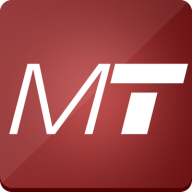

D-Link Ethernet Switches and MikroTik Cloud Router Switches are prominent in the networking hardware category. D-Link is often favored for its cost-effectiveness and simplicity, while MikroTik is noted for its advanced features and overall value.
Features: D-Link Ethernet Switches stand out for their ease of use and flexibility in fitting various network sizes with robust security. They offer a variety of speed options, power-saving technology, and features like VLAN and QoS for traffic management. MikroTik Cloud Router Switches are recognized for their high throughput, firewall capabilities, and user-friendly configuration, making them ideal for small to medium businesses.
Room for Improvement: D-Link experiences higher costs for advanced L2 switches and limited cloud integration, with users wanting easier centralized management. Improvements in security, stability, and integration could benefit MikroTik especially in larger environments, along with simplifying configuration and resolving software bugs.
Ease of Deployment and Customer Service: D-Link switches are primarily on-premises with users managing internally, requiring little technical support. MikroTik offers flexible deployment options including cloud, though professional support usage is low. Both brands have feedback indicating a need for better local support and faster technical assistance.
Pricing and ROI: D-Link is generally more affordable than competitors like Cisco, with flexible pricing and minimal licensing fees offering a positive ROI. MikroTik is competitively priced with no recurring fees, providing effective cost management and attractive ROI for cost-conscious businesses.
| Product | Market Share (%) |
|---|---|
| D-Link Ethernet Switches | 4.9% |
| MikroTik Cloud Router Switch | 1.6% |
| Other | 93.5% |


| Company Size | Count |
|---|---|
| Small Business | 18 |
| Midsize Enterprise | 6 |
| Large Enterprise | 7 |
| Company Size | Count |
|---|---|
| Small Business | 19 |
| Midsize Enterprise | 3 |
| Large Enterprise | 2 |
We monitor all Ethernet Switches reviews to prevent fraudulent reviews and keep review quality high. We do not post reviews by company employees or direct competitors. We validate each review for authenticity via cross-reference with LinkedIn, and personal follow-up with the reviewer when necessary.